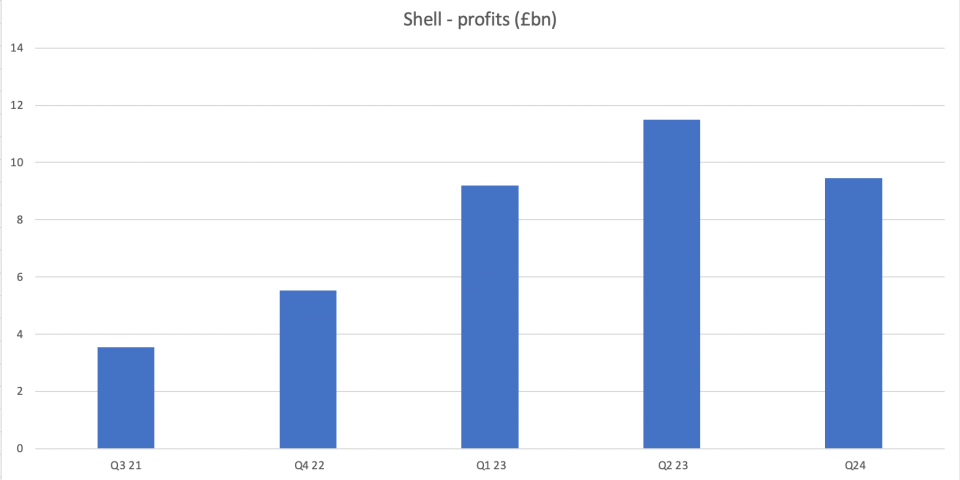Shell will not pay any windfall tax despite booming profits

Energy giant Shell does not expect to pay further taxes under the Energy Profits Levy this quarter, as it has invested sufficient funds in North Sea oil and gas projects such as the Jackdaw, Pierce and Penguin fields.
This has triggered an investment relief mechanism that has largely offset the so-called windfall tax, explained chief financial officer Sinead Gorman.
Gorman said: “We simply are investing more heavily than we have, and therefore we don’t have profits which we can be taxed against.”
The windfall tax – which was unveiled in May – comes with a 91 per cent rebate for energy firms that invest sufficiently in domestic energy projects.
Shell has predicted it will start paying windfall taxes in the first quarter of next year, and has written down around $360m in the third quarter to reflect future tax payments.
Shell’s chief executive Ben van Beurden told reporters that state interventions such as windfall taxes and support packages are a “societal reality.”
He recognised that “many, many people in society were suffering very badly” a result of high energy prices and that governments would feel obliged to step in.
He said: “We should be prepared to accept our industry will be looked at for raising taxes, to transfer funds to of those who need it most in difficult times.”

Windfall tax is not a ‘surprise’ says Shell boss
Van Beurden felt that producers should not be “surprised” to see windfall taxes rolled out across the world, and that operators should engage with governments to help design the best policies.
He said: “We should be helping Governments design the right policies, and there are many different ways to design windfall taxes, special levies and contributions. We should be at the table to make sure these interventions are appropriate.”
The energy boss’ comments follow Shell unveiling another mammoth trading update – reporting hefty profits in its third quarter of £8.1bn ($9.45bn).
The lion’s share of the profits are generated internationally but also reflect booming business in the UK.
While the headline numbers were below its record previous quarter earnings this year of £9.9bn ($11.5bn), it is still the second best result in the company’s history.
The European Union has also recently unveiled its own measures to raise revenues from the profits of energy producers – reflecting the desire of countries to constrain profits fuelled by supply shortages and help fund support for vulnerable households.
This also follows van Beurden’s previous comments this month, where he expressed an open mind to higher taxes.
Shell recorded two consecutive quarters of record in the first half of the year – amid a Kremlin-fuelled commodities boom following Russia’s invasion of Ukraine.
The latest results have reignited calls from the Labour Party to expand the windfall tax.
The opposition has called for the Government to backdate to windfall tax to January 2022 and to remove investment relief from the levy.
Earlier this month, Chancellor Jeremy Hunt refused to rule out expanding the windfall tax, however he recognised that oil and gas companies typically had boom and bust years as part of their market cycle.
The Government recently unveiled a cap on revenues from renewable generators – to constrain earnings from companies benefitting from soaring wholesale costs dictated by gas prices.

Industry body Offshore Energies UK has warned against further destabilising the investment climate for new projects – which it regards as crucial to maintaining the North Sea’s role in producing oil and gas.
It has calculated that the Britain produces around 45 per cent of its gas domestically – and relies on Norway as its chief overseas partner, which meets 38 per cent the country’s gas needs.
The Climate Change Committee, Westminster’s independent advisory group, predicts half of the UK’s energy requirements between now and 2050 will still be met by oil and gas, and as much as 64 per cent of UK energy needs between 2022 and 2037.
However, Downing Street is also grappling with record energy bills for households, which have risen to £2,500 per year for average use.
This would have been much higher without the Energy Price Guarantee capping unit rates – with Cornwall Insight predicting the energy price cap will rise to over £4,000 per year next April when the support package ends.